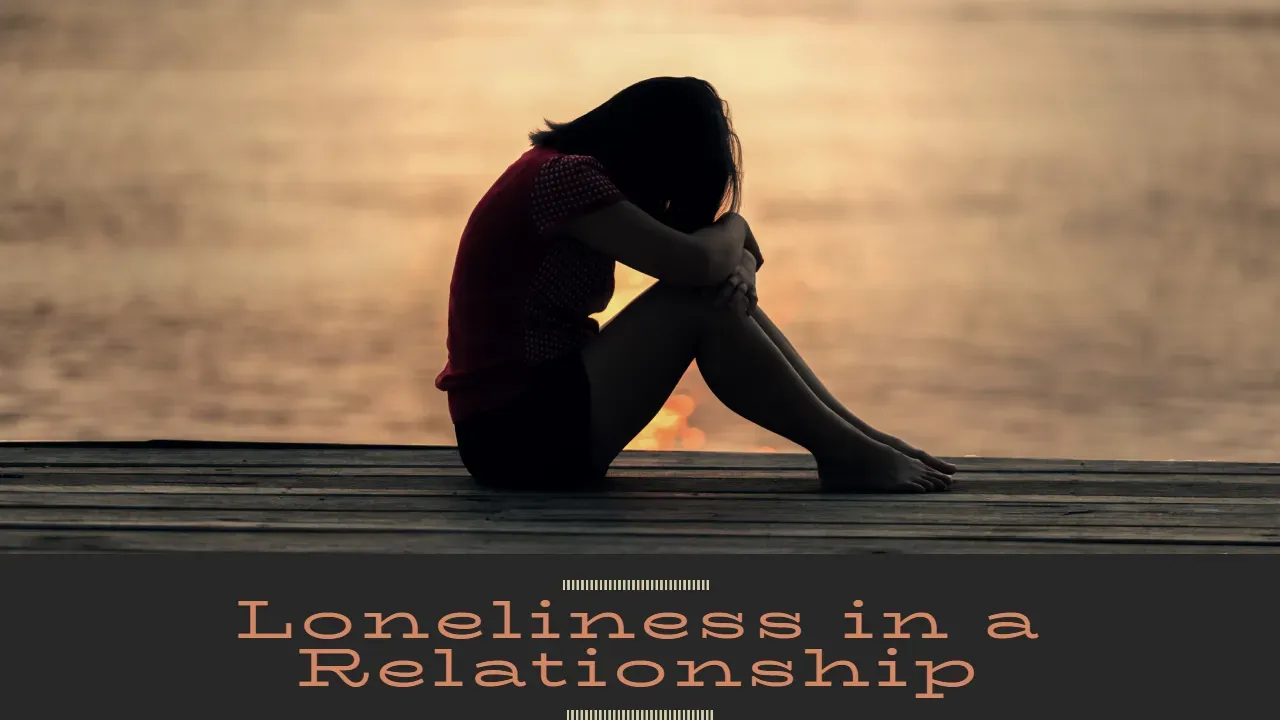Overcoming Loneliness in a Relationship
Loneliness in a relationship can be challenging and emotionally draining. It's not uncommon for couples to feel disconnected or isolated despite being together.
However, recognizing and addressing this issue is the first step toward building a stronger, more fulfilling relationship. In this guide, we'll explore the various factors contributing to relationship loneliness and provide practical strategies for overcoming it.
ToC
Understanding Relationship Loneliness
Loneliness in a relationship doesn't always stem from physical separation; it can also result from emotional distance. Some common factors contributing to relationship loneliness include:
- Communication Issues: Inadequate communication or a lack of meaningful conversation can lead to feelings of loneliness.
- Unresolved Conflicts: Lingering disputes or unaddressed issues can create emotional distance between partners.
- Different Interests and Hobbies: When couples have few shared activities, they may feel disconnected.
- Changing Priorities: Life changes such as career shifts or becoming parents can alter priorities and lead to loneliness.
Feeling Lonely in Your Relationship? Here’s How to Overcome It
Here are some tips and strategies to help you overcome loneliness in your relationship:
It can be challenging and disheartening if you feel lonely in your relationship.
However, there are strategies you can employ to cope with these feelings and work towards improving your connection.
Here are seven strategies to help you navigate this situation:
Building Connection and Intimacy
- Developing a solid connection and cultivating emotional intimacy are essential for building fulfilling and meaningful relationships.
- Whether you are in a new relationship or have been together for years, fostering a deeper bond requires intentional effort and commitment
- Schedule quality time together regularly
- Engage in activities that you both enjoy
- Practice active listening and engage in meaningful conversations
- Prioritize physical affection and intimacy
Communication is Key
- Express Your Feelings: Openly communicate your emotions and concerns to your partner. Let them know how you're feeling and how it impacts you.
- Active Listening: Encourage open and honest dialogue by actively listening to your partner's perspective without judgment. Seek to understand their feelings and experiences as well.
Explore the Root Causes - Identifying the Root Cause of Loneliness
- Self-Reflection: Reflect on your emotions and triggers.
- Introspection: Take time to reflect on your own emotions and experiences. Consider when and why you feel lonely within the relationship. Are there specific triggers or patterns that contribute to these feelings?
- Personal Needs: Reflect on your individual needs and expectations in a relationship. Are these needs being met? Are there any unfulfilled desires or gaps in communication that contribute to your sense of loneliness?
Relationship Dynamics: Assess communication and emotional intimacy
- Communication Patterns: Assess the quality and frequency of communication between you and your partner. Are there challenges in expressing your emotions or in understanding each other's feelings?
- Emotional Intimacy: Evaluate the level of emotional intimacy in your relationship. Do you feel emotionally connected and understood by your partner? Are there barriers that hinder open and vulnerable conversations?
External Factors: Consider time spent together and support networks.
- Time Spent Together: Consider how much time you and your partner spend together. Are there external factors such as work, commitments, or distance that limit your opportunities for connection?
- Supportive Network: Evaluate the availability of social support outside the relationship. Are you able to maintain meaningful connections with friends and family? Do you have a support system to rely on?
Individual Factors: Reflect on personal well-being and self-reliance.
- Personal Well-being: Assess your own well-being and self-care practices. Are you engaging in activities that bring you joy, fulfillment, and a sense of purpose? Are there areas of personal growth that need attention?
- Self-Reliance: Consider your expectations of your partner and the importance of self-reliance. Are you solely relying on your partner for emotional fulfillment and companionship?
Foster Connection and Quality Time
- Plan Meaningful Activities: Engage in activities together that foster connection and enjoyment. These can be anything from shared hobbies to date nights or spending quality time talking and reconnecting.
- Prioritize Emotional Intimacy: Build emotional intimacy by creating a safe space for vulnerability and deeper conversations. Share your thoughts, dreams, and fears with each other to foster a stronger bond.
Seek Support
- Reach Out to Loved Ones: Don't hesitate to seek support from trusted friends or family. Sharing your feelings can provide comfort, perspective, and potential solutions.
- Consider Professional Help: If the feelings of loneliness persist or become overwhelming, seeking guidance from a therapist or counselor can be beneficial. They can provide tools and strategies to help navigate the challenges in your relationship.
- Consider couples therapy or counseling to work through relationship issues
- Reach out to trusted friends and family members for support and connection
- Join a support group or community for individuals experiencing relationship challenges
Focus on Self-Care
- Nurture Your Individual Well-being: Prioritize self-care activities that bring you joy and fulfillment. Engage in hobbies, exercise, practice mindfulness, or pursue personal goals to enhance your well-being.
Explore Personal Growth
- Personal Development: Invest time and energy in personal growth. This can involve self-reflection, reading self-help books, attending workshops, or seeking personal coaching to gain insights and develop new skills.
Conclusion
Loneliness in a relationship is a common challenge, but it's not insurmountable. By acknowledging and addressing the factors contributing to loneliness and implementing these strategies, you and your partner can build a more connected, fulfilling, and resilient relationship.
Source & Credits
(getButton) #text=(How To Build Emotional Intimacy In A Relationship)#color=(#de1738)
LinkTo.Directory




